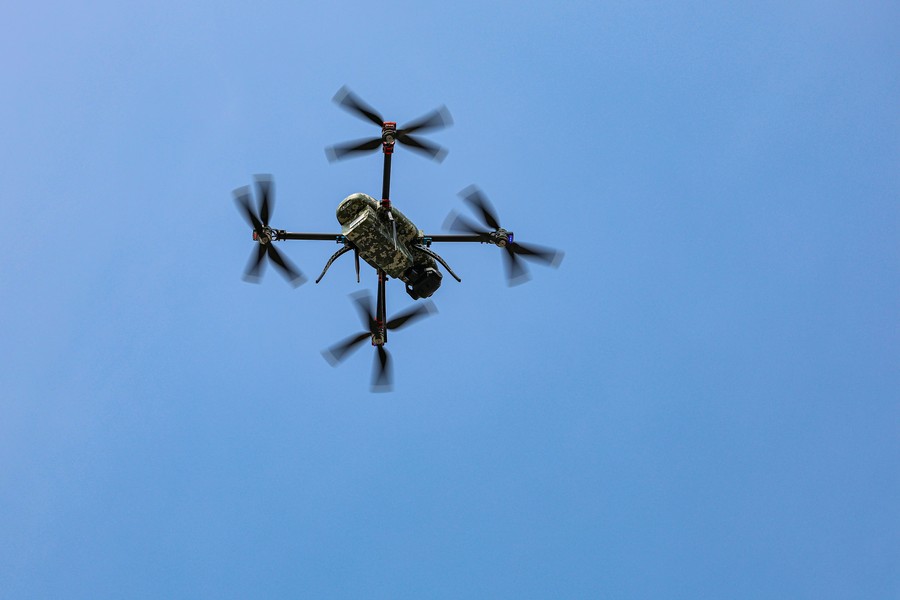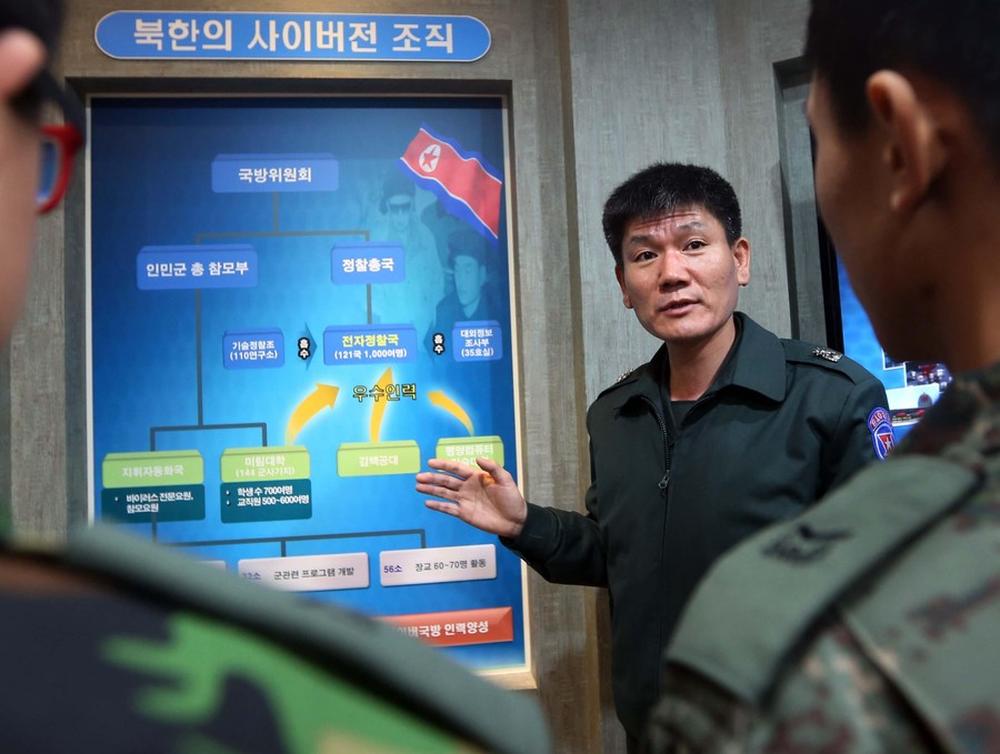- #Multilateral Relations
- #Technology & Cybersecurity
- #US Foreign Policy

► The integration of AI into military operations raises important ethical and legal considerations.
► It is crucial to establish clear guidelines and regulations to ensure the responsible use of AI in warfare.
► Addressing these ethical and legal challenges will be critical to harnessing the benefits of AI while minimizing its risks.
The Responsible AI in the Military Domain Summit (REAIM) 2024 was a significant event that brought together global stakeholders to discuss the responsible application of artificial intelligence (AI) in military contexts. Co-hosted by the Republic of Korea and the Netherlands, the summit took place in Seoul from September 9 to 10, 2024. This summit followed the inaugural REAIM Summit held in The Hague in February 2023, marking a continued effort to address the ethical, legal, and security implications of AI in the military domain.
The summit was attended by representatives from over 90 countries, including government officials, international organizations, AI companies, academia, and non-governmental organizations (NGOs). The primary objective was to foster international cooperation and establish guidelines for the responsible use of AI in military operations. The event was structured around plenary sessions, keynote speeches, panel discussions, and breakout sessions, providing a comprehensive platform for dialogue and collaboration.
The REAIM Summit 2024 focused on several critical themes. First, participants assessed the potential impact of AI on the international security environment, particularly concerning conflict dynamics and the proliferation of weapons of mass destruction (WMDs). Discussions highlighted both the benefits and risks associated with the military application of AI.
Second, they explored the key principles and measures necessary for the responsible application of AI in military contexts. Participants discussed ways to translate general principles into concrete actions, emphasizing the importance of ethical considerations and adherence to international law.
Third, the summit addressed the need for cooperative governance frameworks to ensure the responsible use of AI in military operations. Participants explored key considerations for future AI governance and measures to enhance international cooperation.
Lastly, special sessions, known as REAIM Talks, featured experts from relevant industries and academia who discussed the essential aspects of AI that policymakers should understand. These sessions provided insights into the technical and engineering approaches to implementing policies for responsible AI application.
The summit's closing session saw the official endorsement of the "Blueprint for Action" as the outcome document. This document outlines the key principles and measures for the responsible development, deployment, and use of AI in the military domain. It serves as a guideline for countries to follow, ensuring that AI technologies are used ethically and responsibly in military operations. A notable achievement of the summit was the adoption of a resolution on the military use of AI by the United Nations (UN) General Assembly committee. This resolution, jointly presented by Korea and the Netherlands, was adopted by 165 countries, including major powers such as the United States, Japan, and China. The resolution proposes applying international law to military AI, maximizing the benefits of AI while minimizing its dangers, and narrowing the AI gap between developing and advanced economies.
The summit fostered enhanced international cooperation on AI governance in the military domain. Representatives from various countries shared their national views on approaches, priorities, concerns, and challenges related to the military AI Summit 2024. This exchange of perspectives is expected to lead to more coordinated and effective international efforts in managing the risks and benefits of AI in military contexts.
The summit emphasized the importance of capacity building and knowledge sharing among countries. Workshops and regional consultations were held to discuss the responsible application of AI in the military domain, with a focus on narrowing the AI gap between developing and advanced economies. These efforts are aimed at ensuring that all countries can benefit from AI technologies while mitigating potential risks.
Artificial Intelligence (AI) is poised to revolutionize war strategies and battle tactics in the not-so-distant future. As AI technologies continue to advance, their integration into military operations is expected to bring about significant changes in how wars are fought and won. This report explores the potential impact of AI on military strategies and tactics, highlighting key areas where AI is likely to play a transformative role.
One of the most significant ways AI will shape war strategies is through enhanced decision-making capabilities. AI systems can process vast amounts of data in real-time, providing military commanders with valuable insights and recommendations. This capability will enable faster and more informed decision-making, allowing for more effective responses to dynamic battlefield conditions. AI-driven decision support systems will analyze data from various sources, including satellite imagery, sensor networks, and intelligence reports, to identify patterns and predict enemy movements.
The deployment of autonomous systems, such as drones and unmanned ground vehicles, is expected to become more prevalent in future military operations. These systems can perform a wide range of tasks, from reconnaissance and surveillance to combat and logistics support. Autonomous drones, for example, can conduct high-risk missions without putting human lives at risk. They can also operate in swarms, coordinating their actions to overwhelm enemy defenses. The use of autonomous systems will enhance the effectiveness and efficiency of military operations, reducing the need for human intervention in dangerous situations.
AI will also play a crucial role in the realm of cyber warfare. As cyber threats become more sophisticated, AI-powered cybersecurity systems will be essential for detecting and mitigating attacks. AI can identify vulnerabilities in military networks and develop strategies to protect critical infrastructure. Additionally, AI-driven offensive cyber capabilities can be used to disrupt enemy communications, disable their defense systems, and gather intelligence. The integration of AI into cyber warfare will provide militaries with a significant advantage in the digital battlefield.
Predictive analytics is another area where AI will have a profound impact on war strategies. By analyzing historical data and current trends, AI systems can predict future events and outcomes. This capability will enable military planners to anticipate enemy actions and develop proactive strategies. For example, AI can analyze patterns in enemy troop movements to predict their next move, allowing commanders to position their forces strategically. Predictive analytics will also be used to optimize logistics and supply chain management, ensuring that troops have the resources they need when and where they need them.
Another area that requires our attention is human-machine teaming. The concept of human-machine teaming will be central to the future of military operations. AI systems will work alongside human soldiers, augmenting their capabilities and providing support in various tasks. For instance, AI-powered exoskeletons can enhance soldiers' physical abilities, allowing them to carry heavier loads and move more quickly. AI assistants can provide real-time information and guidance, helping soldiers make better decisions on the battlefield. The collaboration between humans and AI will create a more effective and resilient fighting force.
The integration of AI into military operations raises important ethical and legal considerations. The use of autonomous weapons, in particular, has sparked debates about accountability and the potential for unintended consequences. It is crucial to establish clear guidelines and regulations to ensure the responsible use of AI in warfare. International cooperation will be essential to develop norms and standards that govern the deployment of AI technologies in military contexts. Addressing these ethical and legal challenges will be critical to harnessing the benefits of AI while minimizing its risks.
AI is set to transform war strategies and battle tactics in the not-so-distant future. Enhanced decision-making, autonomous systems, cyber warfare, predictive analytics, and human-machine teaming are just a few areas where AI will have a significant impact. As militaries around the world continue to invest in AI technologies, it is essential to address the ethical and legal considerations associated with their use. By doing so, we can ensure that AI is harnessed responsibly to enhance the effectiveness and efficiency of military operations while safeguarding human values and principles.
Dr. Young Joon Kim is a Professor at Gyeongsang National University. He has received his Ph.D. from Claremont Graduate University. Dr. Kim writes and studies on U.S. foreign policy, Alliance politics, and U.S.-China relations. Prior to joining Gyeongsang National University, Dr. Kim was a research fellow at the Institute for National Security Strategy(INSS) where he conducted quantitative and computational analysis on Asian regional affairs.





